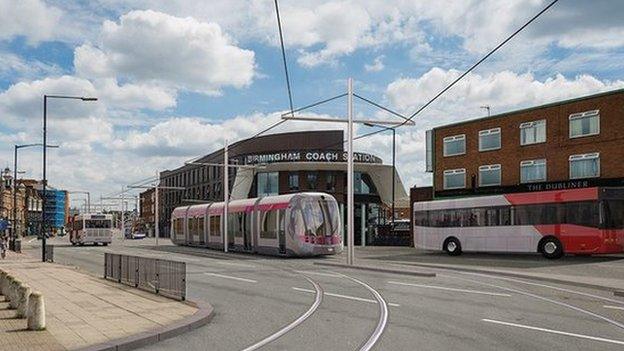Birmingham tram network will 'rival the best'
- Published
Do you remember Birmingham's last tram?
The reintroduction of trams to Birmingham will "give the city a network to rival the best", a transport official has said.
Trams ran in the city between 1904 and 1953 before being replaced by buses.
In December, they returned to the streets with the opening of the Midland Metro service - the first part of a £128m project.
Once complete, trams from Wolverhampton will continue in to Birmingham, terminating at New Street station.
Roger Lawrence, chairman of the West Midlands Integrated Transport Authority said: "This is an opportunity to expand. Not just into the city centre but out to the airport.
"We will have a network to rival the best ones, like Manchester and Nottingham and even south London. Our network will equal those".
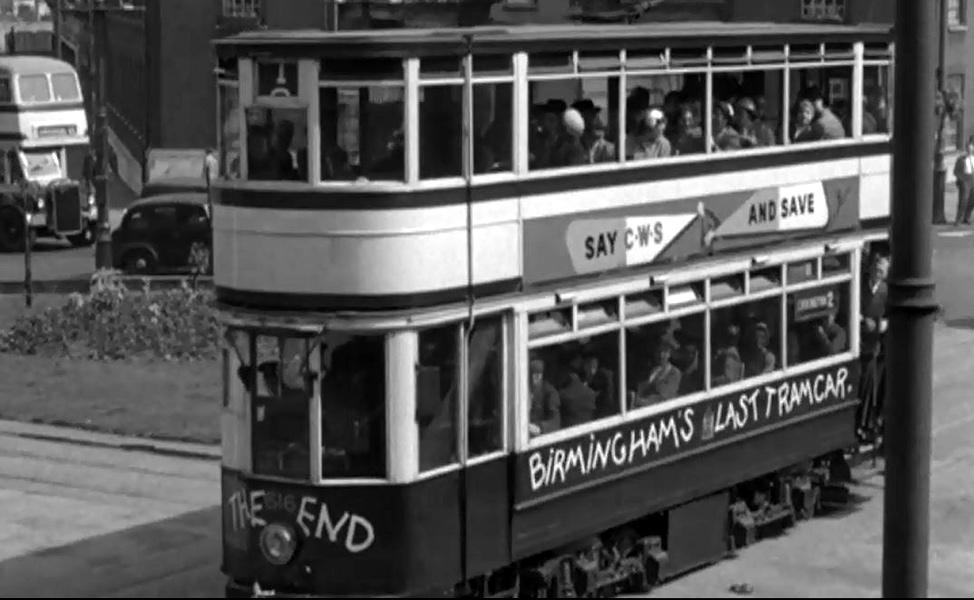
Birmingham's last tram ran in 1953 before being reintroduced in December 2015
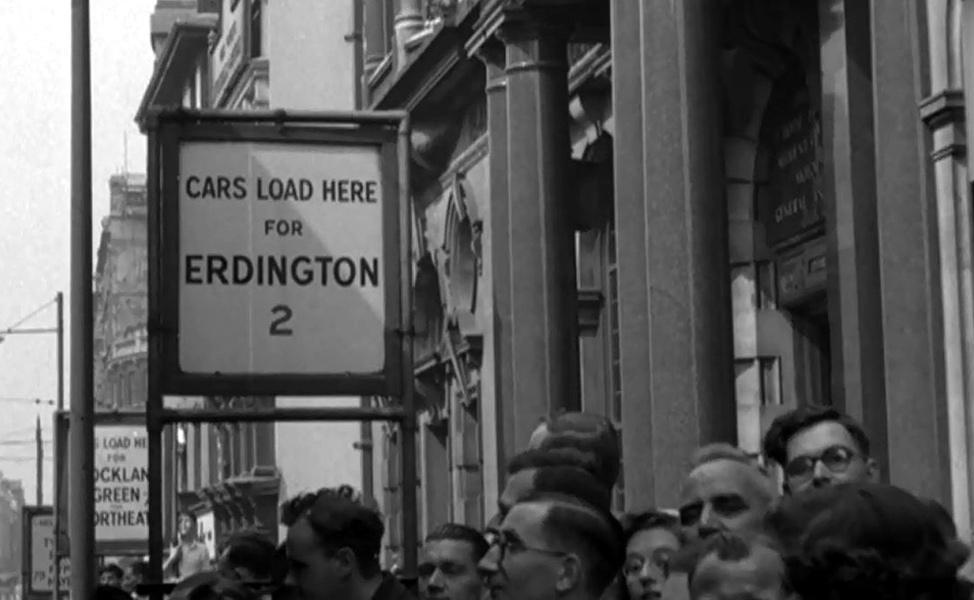
Trams ran from Erdington to the Lickey Hills
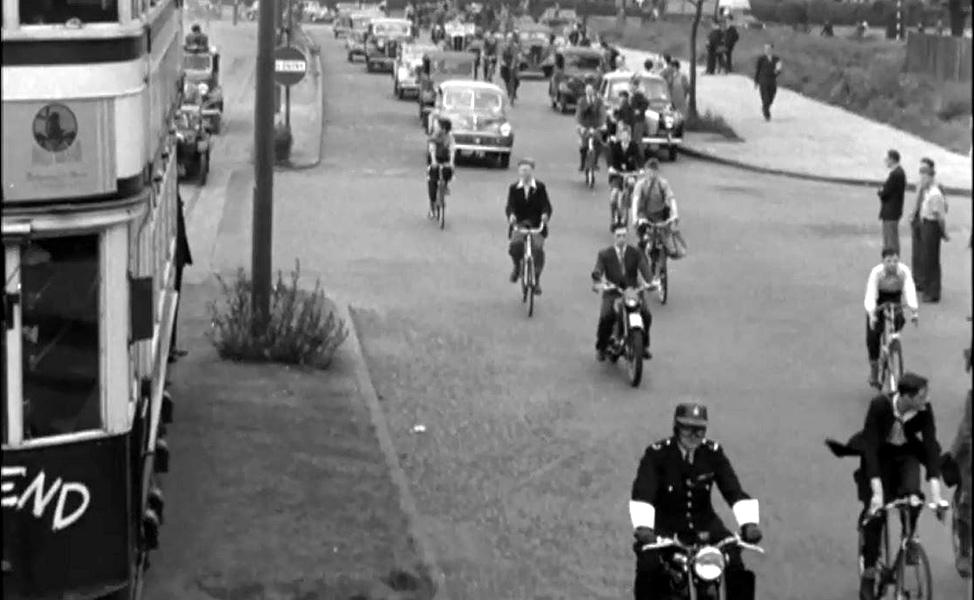
Cyclists and motorists followed the tram on its final journey
At its peak, the original tram network ran 230 million passenger journeys every year from Yardley to Dudley, and from Erdington down to the Lickey Hills.
Elsie Field, now 91, began working on the trams as a conductress when she was 18. Part of her job was using a pole to connect the tramcar to the overhead power lines.
She said although she was short-sighted she was "too proud to wear her glasses, so the connection was sometimes a bit hit-and-miss".
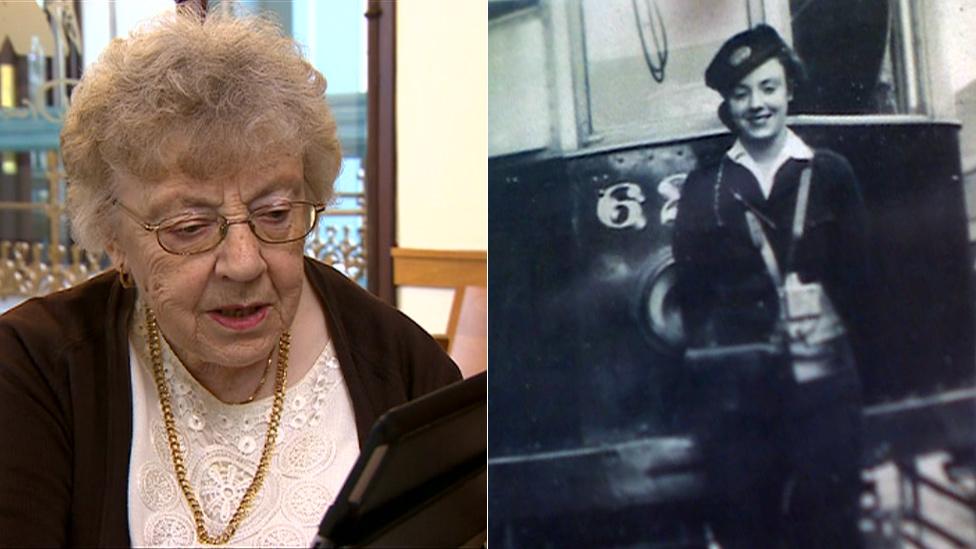
Elsie Field worked as a conductress between 1942 and 1953
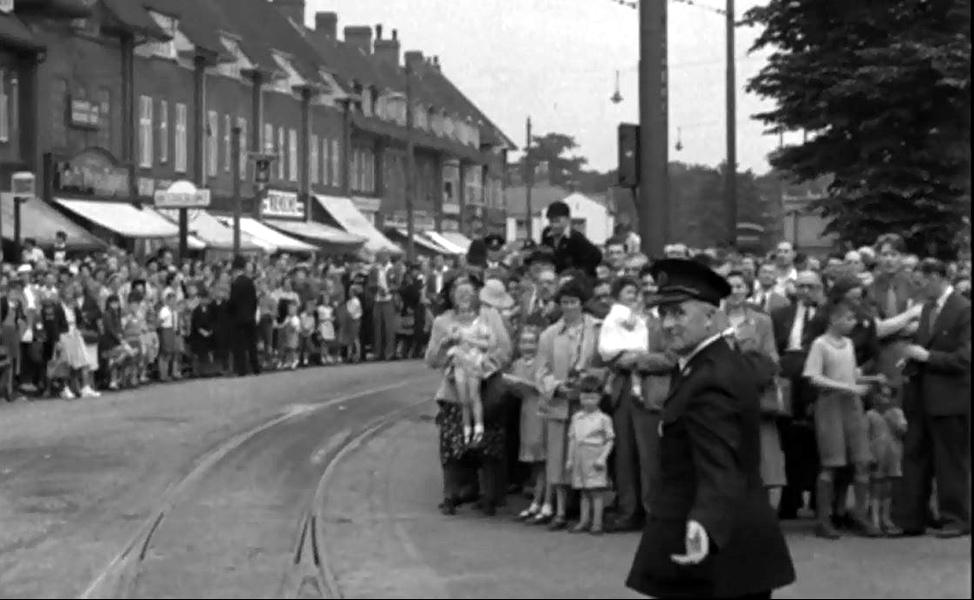
Crowds gathered to watch the final tram, which marked the end of nearly 50 years of service
Tram enthusiast Geoffrey Claydon grew up in Birmingham and said he was disappointed when his regular commute was replaced by a bus service.
"I said why have the trams gone and was told 'Oh, they're old fashioned'. From that moment I thought I would be very supportive of trams, I would do my best to try and keep them where I can for the rest of my life".
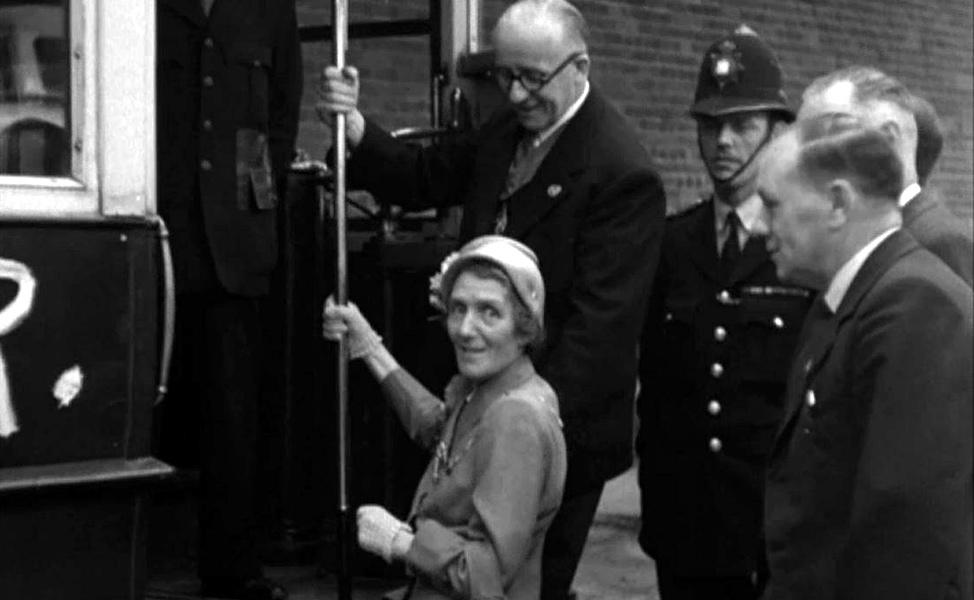
Trams ran in the city between 1904 and 1953 before being replaced by buses
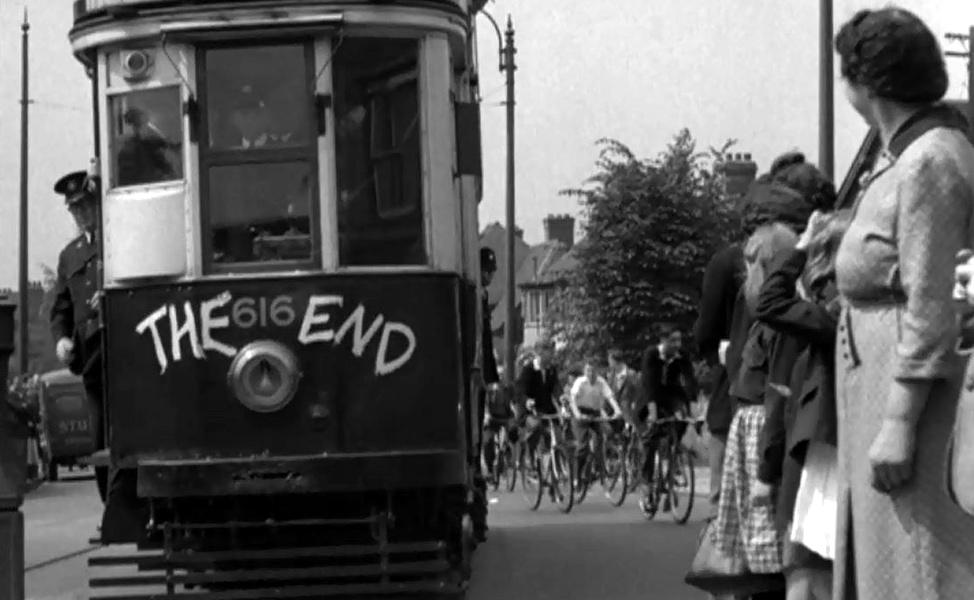
'The end' was daubed on the front and sides of the final tram, which was replaced a by a bus service
When working as a government lawyer, Mr Claydon helped design the Transport and Works Act of 1992, which paved the way for the Midland Metro Line.
"I can now feel quite smug. It was an immense satisfaction that I've lived long enough to see trams back and the poor souls who got rid of them have been proved wrong".
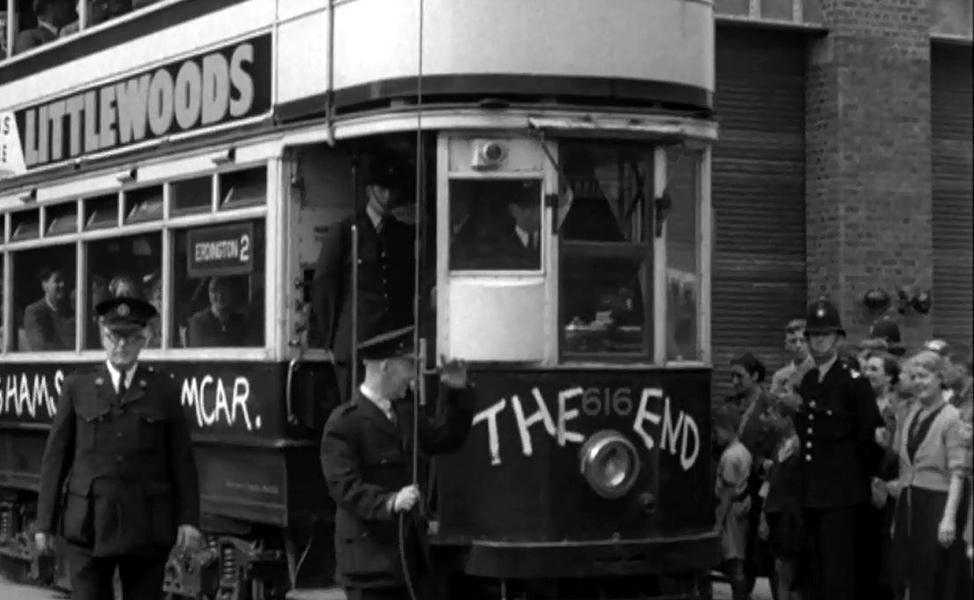
Trams were absent from the streets of Birmingham for more than 60 years before being reintroduced in 2015
Inside Out West Midlands has a full report on the history and reintroduction of trams in Birmingham on BBC One, Monday at 19:30.
- Published6 December 2015
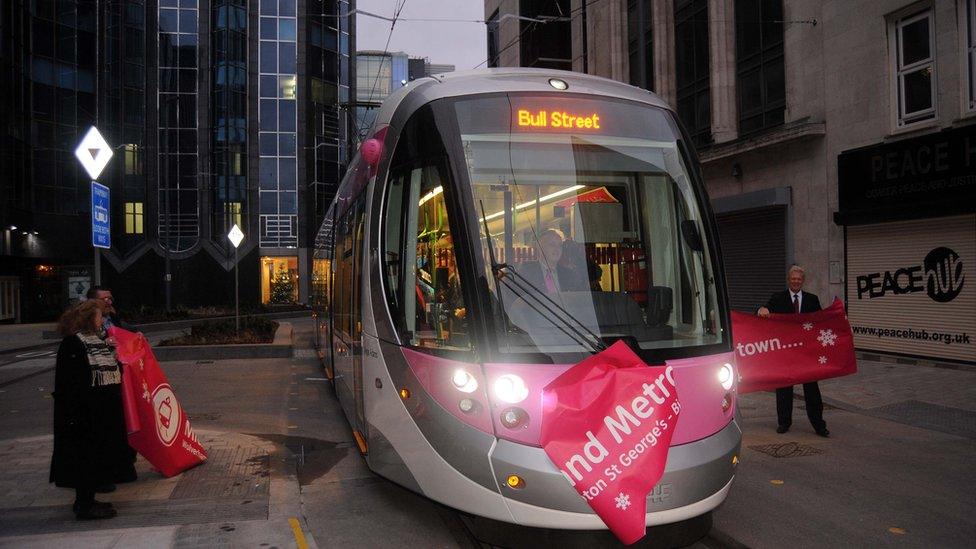
- Published1 December 2015
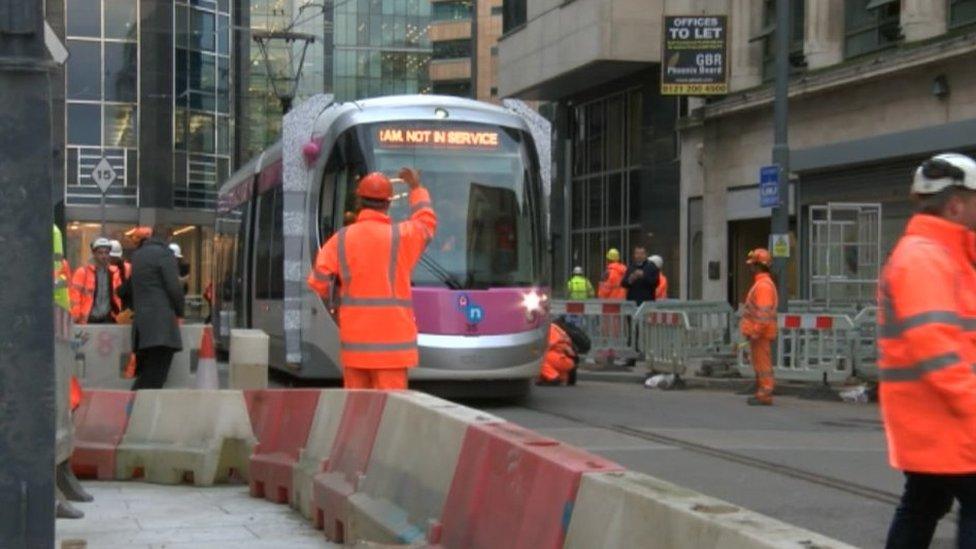
- Published17 November 2015
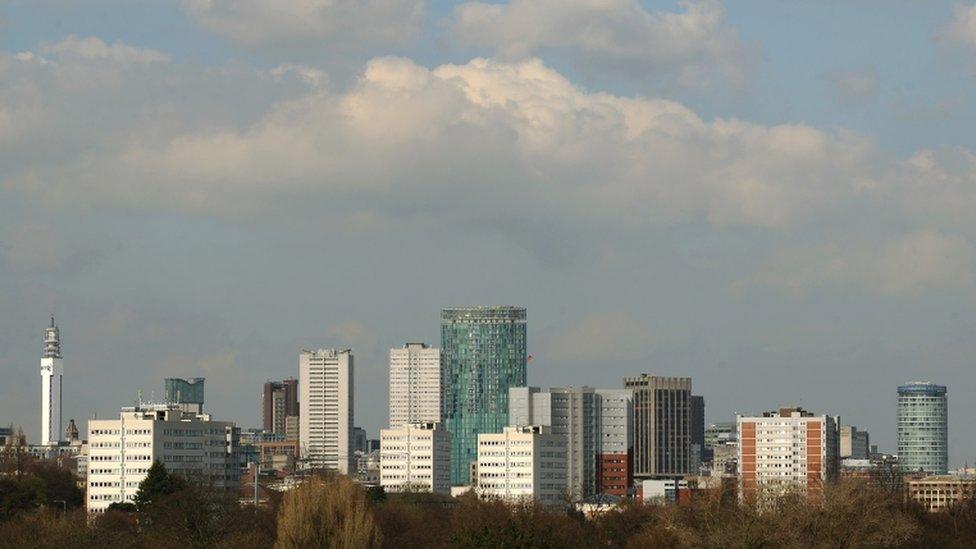
- Published19 March 2015
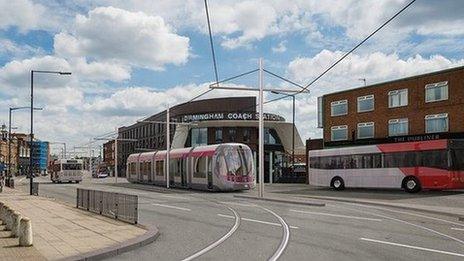
- Published9 October 2014
